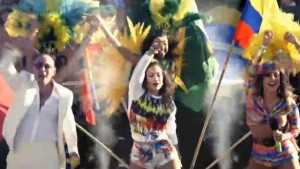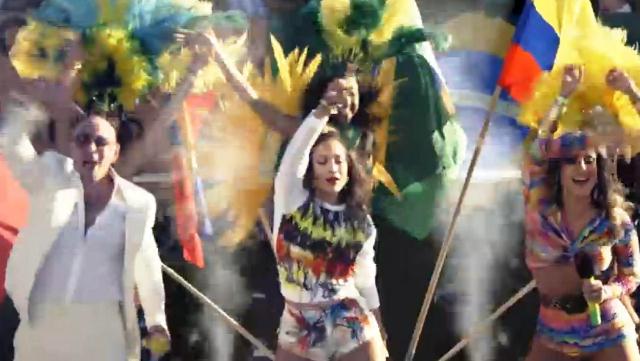
Since the release of FIFA’s “We Are One (Ole Ola),” fans in Brazil have been slamming the official theme.
Many expressed their frustration on Twitter under the tag #VoltaWakaWaka, a plea for the return of the widely loved song that Colombian artiste, Shakira performed for the 2010 tournament in South Africa.
Although Brazilian Claudia Leitte is also featured in the official theme, critics say they don’t understand why Cuban-American rapper Pitbull and Bronx-born Puerto Rican singer, Jennifer Lopez were chosen for the song when there are many other great musicians in the land of Bossa Nova.
They also complain that the song is mostly done in English and Spanish, leaving only a few seconds at the end for Leitte to sing in her native Portuguese.
“What I don’t like about the music is that it’s a poor, dull, generic pop theme,” said Gaia Passarelli, a Brazilian music journalist and a former VJ for MTV Brazil. “It’s a shame considering Brazil’s rich musical tradition, which is admired all over the world.”
“In the end, we lost a chance to do something rich, inspiring and cool. I’m feeling ‘saudades’ for Shakira,” Passarelli said, using a Portuguese word that translates as painful longing.
“In my many visits to this country, I’ve heard a lot about the great Brazilian music tradition and it gives me great pleasure to see a Brazilian artist at the heart of this song,” FIFA Secretary General Jerome Valcke emphasized Leitte’s involvement with the song.
The song’s video features images of Brazil’s icons like Rio’s Christ the Redeemer statue as well as Brazilian soccer stars. But critics say it also reinforces stereotypes with smiling, barefoot children and semi-naked, samba-dancing women.
Naming an official FIFA song dates back to the 1966 Cup in England. “The music in other World Cups was also stripped of local colour,” said Leonardo Martinelli, a composer and music critic who lives in Sao Paulo.
“Whether it’s in South Africa, Germany or Japan-Korea, the regional musical element was used only as a very light seasoning, just enough to give it a discreet local colour,” he said. “In the case of this latest song, the seasoning has its right amount of clichés and stereotypes usual with commercial music.”

